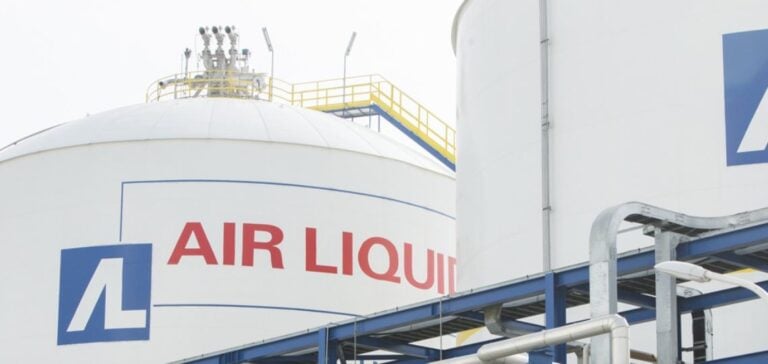Air Liquide, a major player in industrial gases, has announced an investment of over 80 million euros to develop a green hydrogen unit at TotalEnergies’ La Mède biorefinery, located in southern France. This ambitious project aims to produce 25,000 tons of renewable hydrogen annually from recycled biogenic byproducts, marking a significant step towards Europe’s energy transition.
This facility, planned for 2028, is part of a comprehensive decarbonization strategy, enabling TotalEnergies to reduce carbon dioxide emissions from its Mediterranean site by 130,000 tons annually. This partnership adds to similar initiatives between the two companies, including agreements for the Grandpuits and Gonfreville refineries.
A strategic project for the Fos-sur-Mer region
The unit will be located in the industrial hub of Fos-sur-Mer, a strategic area for Air Liquide, which already operates several facilities there, including Europe’s first high-pressure hydrogen fueling station for heavy-duty trucks. “We are proud to support the decarbonization of the La Mède biorefinery through our strategic positioning in Fos-sur-Mer,” said Émilie Mouren-Renouard, member of Air Liquide’s executive committee.
The project also responds to increasing pressure on European industrial companies facing stricter environmental regulations and rising carbon prices. Renewable hydrogen is increasingly seen as a key alternative for reducing the carbon footprint of industrial processes.
The rise of sustainable aviation fuels (SAF)
This development aligns with the growth of sustainable aviation fuels (SAF). TotalEnergies, a leader in this field, already produces SAF at several sites in France, notably from biodiesel processed at La Mède. At Grandpuits, the company is transforming the site into a zero-oil platform, primarily focused on SAF from the circular economy, with a projected capacity of 210,000 tons annually by 2025.
According to recent data, SAF will represent 0.61% of global aviation fuel consumption in 2024, rising to 3.24% by 2030 and 24.06% by 2050. However, these fuels remain costly, with prices significantly higher than traditional fossil-based fuels, reaching a premium of $1,432.75 per ton according to the latest assessments.
This collaboration between Air Liquide and TotalEnergies reflects a strong commitment from industrial players to meet the European Union’s climate objectives, notably under the ReFuelEU initiative, which mandates an increasing share of SAF in aviation fuels.






















